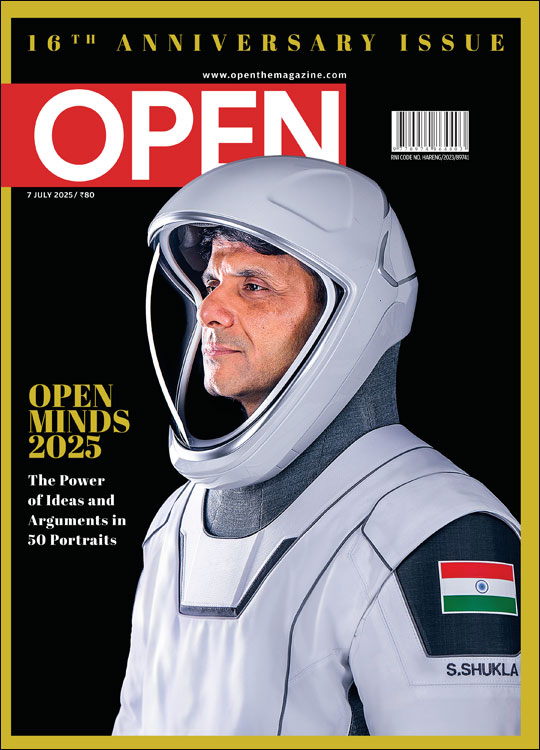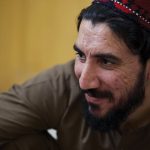Dr Fazal Gafoor: The Good Doctor
Being Dr Fazal Gafoor, the president of the Muslim Educational Society that has banned burqas and veils in classes, isn’t just tough. It is dangerous
/wp-content/uploads/2019/05/Gooddoctor1.jpg)
Fazal Gafoor is a ‘cosmopolitan’, if you apply the great thinker Benedict Anderson’s definition of the term. He speaks multiple languages, having been to primary school in Edinburgh where his mother and he had accompanied his father who had moved to the Scottish capital from Kerala to pursue studies in the 1950s. While Gafoor was there, he observed first-hand how his dad, a successful doctor and academic, encouraged his mother Fathima to break the glass ceiling long before the expression acquired feminist overtones. His father, Dr PK Abdul Gafoor, was founder-president of the Muslim Educational Society (MES) whose aim was to uplift the minority community, in Kerala as well as the rest of the country, through western education. MES currently runs 150 educational institutions, including medical and engineering and other professional colleges.
Gafoor Jr, who gradually took over the reins of MES from his father after the latter’s death at age 57 in 1984, was destined to convert the organisation into a much larger entity than its founders had initially envisaged it to be. And all through, empowering women by imparting them state-of-the-art education remained priority for MES under Gafoor’s watch. “In medical and engineering courses, we have more lady students than male ones,” Gafoor tells me proudly.
For all his progressive credentials, he is in the eye of a storm lately for another reason though. It follows a circular he issued recently asking all women students of MES colleges and schools not to wear the veil or burqa to classes. In response, a few religious fanatics in India’s most literate state have even issued death threats to Gafoor for reportedly violating religious practices. But the sexagenarian laughs off such wily pronouncements by a section of clerics in Kerala, saying he has merely insisted on students wearing a uniform primarily to ‘obliterate’ class biases among them. A stark display of class disparities is often visible when richer students don expensive and branded clothes. “As students, they have to focus on studies, not on ostentatious display of wealth or religiosity,” avers Gafoor, a renowned neurologist, who vows to carry forward the tradition of his forefathers who had won laurels, thanks to them spurring social reforms within the Muslim community in Kerala and elsewhere.
Perhaps it is only natural that his statement over a dress code has kicked up a row in a state, which, despite being home to Muslims who are socially, economically and politically empowered, has been in the news lately for the wrong reasons. The National Investigation Agency (NIA) has for long reported radicalisation among certain groups of Muslims in the state and of surfacing of outfits inspired by the Islamic State (IS). Shortly after the deadly terror attacks on multiple sites in neighbouring Sri Lanka, NIA has nabbed a youth, Riyas Aboobacker, for plotting Lankan-style bomb blasts in Kerala, where Gulf money has fuelled the rise of Islamism.
Gafoor, meanwhile, disregards the opposition from orthodox Muslims and refutes charges of being anti-Islamic saying, “There is nothing un-Islamic about insisting that students wear a uniform.” He exhorts clerics opposed to the measures MES has undertaken to start their own educational institutions where they can enforce a suitable dress code. He emphasises that of the total 1 lakh MES students, 40,000 are girls and none of them have any grievance against this new order by the society, which decided to issue the statement this time around after it had to deny a student admission last year when she insisted on wearing a veil to college. She later went to court, which upheld the stand of the institution. It is in this context that MES issued a new circular to clarify its stated position on women students covering their face. This order also states that the dress code has to be implemented without inviting any controversy. Gafoor, for his part, vehemently rejects the view that a veil or a purdah reflects the cultural identity of a Muslim woman.
For all his progressive credentials, Gafoor is in the eye of a storm lately for issuing a circular asking all women students of MES colleges and schools not to wear the burqa
Gafoor’s order, dated April 17th, 2019, which reiterated MES’ well-known policy, stated that students must dress modestly and not let religious reasons or modern trends influence them. This prompted another campaign—that the MES management is against girls wearing leggings or jeans. Gafoor contests, “The order doesn’t say that at all. But let’s not forget the fact that MES is a Muslim body.”
For Benedict Anderson, a cosmopolitan is someone who is worldly-wise, thanks to his or her exposure to other cultures and languages. For someone born to a progressive Moplah family in Kozhikode in Kerala several of whose members were peripatetic, Gafoor is a breakaway from the usual mould. He has not only travelled wide in India and overseas but he has also lived and studied in places in India where epoch-making political events took place.
But his confrontations with new cultures and languages, gender debates and politics were even older. As a young student in England, it was his mother who drove him to school because she was the first to gain a driving licence, much before his father got one—and that made his father swell with pride. Of course, promoting women is a trait that runs deep in the family. His maternal grandfather was one of the first among Muslims of Kerala who broke the habit of restricting women to households and sent his two daughters, Amina and Fathima, to college. It didn’t mean that his family delinked themselves from Islam. On the other hand, his forefathers had launched various religious movements focusing on theology and related Islamic studies.
Gafoor however rues that radicalisation has rapidly taken roots among Muslims in Kerala as opposed to dialogue on Islam that was prevalent until the Gulf Boom of the late 1970s and the 1980s. “Poor Muslims went to work in Gulf countries and came under the influence of their Arab masters and brought back home not only money but also a perverse version of Islam,” notes Gafoor. He is of the view that the intellectual dominance of well-heeled Muslims of north Malabar ceased to have impact over time, fostering fanaticism and a strict interpretation of Islam akin to the one in Islamic countries. Alongside, Kerala saw a quick adoption of dressing customs of the Middle East among Muslim women. In the searing heat of Kerala summer, many women wore burqas, in a big departure from earlier ways.
Dr Fazal Gafoor is a breakaway from the usual mould of Kerala’s community leaders. He has not only travelled wide but has also lived and studied in places where epoch-making political events took place
THE AFFABLE AND extroverted MES president also considers himself lucky enough to have come under the spell, as a young man, of various personalities and movements that altered the course of histories nationally and globally. He belongs to the flower generation—an expression to describe people in the 1960s- 70s who are also known as Hippies. They were galvanised to think and question authority due to a series of movements and events, from rock and roll to Woodstock. First they were scoffed at and then their predecessors were less dismissive of them as protesting youths took to the streets from the universities of Europe to those in America to voice their angst against injustices and wars, including the one in Vietnam. Besides, music became their voice and ‘flower power’. They knew the Beatles songs, admired Elvis Presley, worshipped psychedelic art, took drugs, celebrated gonzo journalism and gorged on anything to do with the Beat Generation.
Around this time in India, in 1973, Gafoor went to study medicine in Patna Medical College that soon became the crucible of Jayaprakash Narayan’s Poorna Swaraj agitation. The young student from Kozhikode was swayed by the massive political churning that resulted in the Congress imposing Emergency. By then Gafoor shifted to Kashmir to continue his studies. He remembers Srinagar of the time as a modern city without religious frictions and where Muslim women hardly wore veils. As a table-tennis player, he and his classmates played mixed-doubles matches. In both Patna and Srinagar, his father’s connections meant that he had access to people in high places, and therefore, exposure to political developments at close quarters. In Bihar, he had rubbed shoulders with Lalu Prasad, Nitish Kumar and was a frequent visitor to the residence of Bihar’s then Chief Minister Abdul Gafoor. In Srinagar, Congress leader Ghulam Nabi Azad was then a fellow student.
It was around this time his father organised MES summits in various parts of north India, of which Fathima, his mother, was the spearhead. Interestingly, his parents allowed him to make friends with people of all backgrounds. After he returned from Edinburgh, he joined St Joseph’s School in Kozhikode where he played football with people from fishing families and other disadvantaged groups, offering the rich kid an early introduction to the multiplicity of cultures in his city and beyond. Gafoor Jr also met influential people in his youth. For instance, a few days after Sheikh Abdullah was released in the summer of 1964 after spending 11 years in jail, the Kashmiri leader was a visitor at his home and chief guest at an MES event. The MES also invited the likes of Dilip Kumar, Mohammed Rafi and boxing legend Muhammad Ali as guests at various functions organised by the society.
The national investigation agency has nabbed Riyas Aboobacker for plotting Lankan-style bomb blasts in Kerala, where Gulf money has fuelled the rise of Islamism
“I am least worried about these threats,” Gafoor tells Open about direct and indirect attacks against him following the ban on veils at the MES-run institutions, that have over the past several decades provided modern education to lakhs of students and employ 10,000 people. Almost all MES colleges and schools are co-ed, a step that the organisation introduced more than 30 years ago. The MES also has set aside quotas in jobs for Dalits and other disadvantaged groups. “Which is why our colleges and schools have people from all communities,” says Gafoor, adding that MES was the first private educational body in Kerala that reserved 50 per cent of seats in professional colleges in the state government’s quota. “There was resistance from other similar organisations, but soon they too agreed to do so,” Gafoor points out.
Higher studies took Gafoor first to Hyderabad, and then to Tamil Nadu. Not long after he joined Osmania University in Hyderabad to do his Doctorate of Medicine (MD), Rajiv Gandhi, then a Congress general secretary, humiliated party Chief Minister T Anjaiah at Hyderabad’s Begumpet airport, apparently setting the stage for the decline of the Congress in the southern state. The mistake that Anjaiah made was to organise a rousing reception for the young Gandhi scion, who lost his cool seeing large crowds at the airport and openly called the chief minister a “buffoon” for the wasteful effort. This public humiliation of a son-of-the-soil politician was used to the hilt by the Telugu Desam Party of NT Rama Rao who used the atmagauravam (self-respect) plank to cruise to power in the 1983 polls. Andhra Pradesh, too, like Bihar and Srinagar of the 1970s, left a lasting impression on Gafoor. A few years later, he shifted base to Chennai from where he did his MD. Gafoor, who had read Periyar voraciously and even now calls himself a Periyarist, found a godfather in AIADMK lead C Ponnaiyan, a confidant of the late chief minister and matinee idol MG Ramachandran. It was his interactions with such leaders that cemented his understanding of Indian politics, admits Gafoor, who rues how funds from the Middle East have ruined Kerala’s social fabric. “Those who professed Muslim identity politics in India succeeded in creating the ‘otherness’ of Muslims in the state in a decade that the RSS couldn’t do in many decades,” argues Gafoor, who has penned a book that offers a commentary of India from the Mughal period to the time of Narendra Modi through the eyes of 50-odd authors.
“The MES is a very secular and democratic set-up,” states the 62-year-old, who dwells at length on how each member is elected and not nominated unlike in most registered trusts or societies. He himself had worked his way up to the post of president and not inherited the post from his late father, he says. Gafoor has been instrumental in introducing various reforms in the privately-run educational system in Kerala. As head of the Kerala Film Chamber of Commerce, he was at the forefront of crucial decisions to improve the financial viability of moviemaking.
As a minority among Kerala Muslims go radical, thanks to Wahabi money, internet and fascination for Jihadist organisations such ISIS that are out to recruit unsuspecting youth, Gafoor says that “such problems will recede only once the inflow of money from the Arab world slides”. Undeterred, the award-winning educationist says that he loves a good fight in the face of verbal assaults and malicious campaigns that include insinuations that he had attended a seminar by a radical group, among others. His enemies call him names (and troll him endlessly) and his admirers find him gutsy and broad-minded.
As our conversation winds up, it is clear: his spirit is contagious.

/wp-content/uploads/2025/06/Cover-OpenMinds2025.jpg)















More Columns
Indian Companies Have a Ransomware Vulnerability Open
Liverpool star Diogo Jota dies in car crash days after wedding Open
'Gaza: Doctors Under Attack' lifts the veil on crimes against humanity Ullekh NP